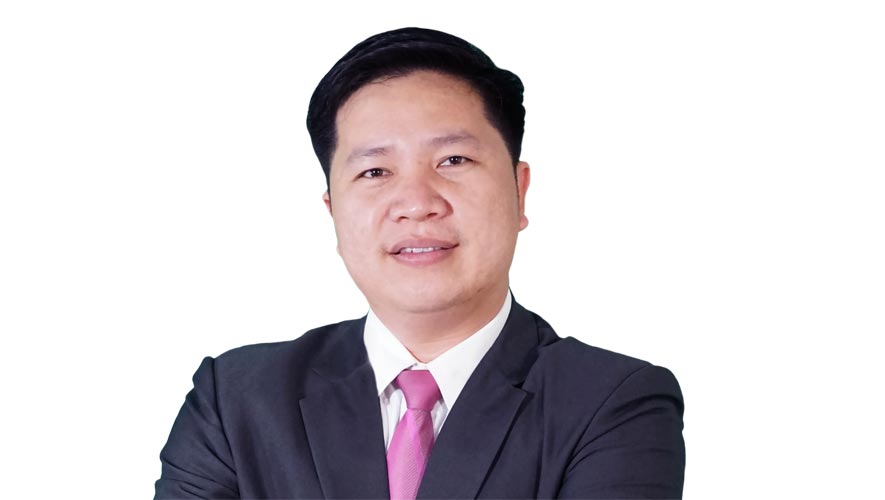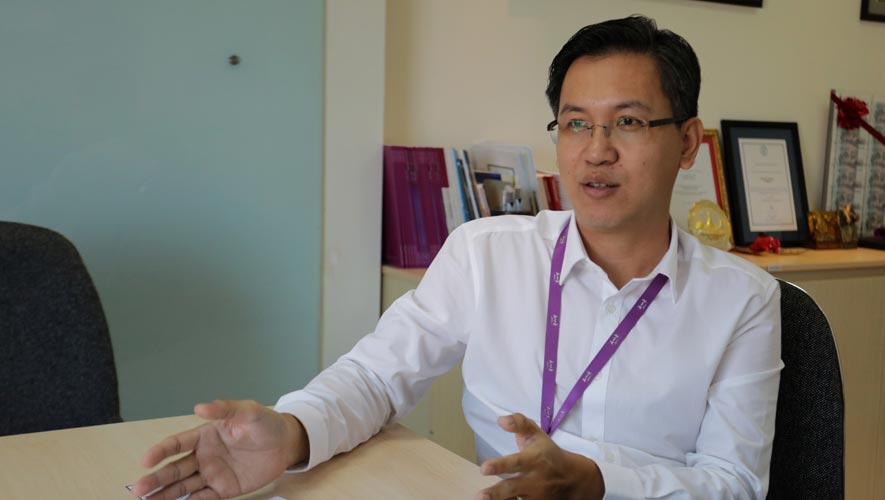Cambodia was put on the global stage again by international media regarding allegations of impropriety in the loans industry.
For the latest Cambodian Business news, visit Khmer Times Business
It followed a report published by local nongovernmental organisations (NGOs) the Cambodian League for the Promotion and Defence of Human Rights (LICADHO) and Sahmakum Teang Tnaut (STT) titled Collateral Damage that made claims of predatory lending and suggested it paints a distorted picture of poverty alleviation and financial inclusion among the population.
The August 7 report took aim at microfinance institutions (MFIs) in Cambodia, saying they were involved in human rights abuses.
The report says more than 2 million Cambodians currently have a loan with an MFI. It adds levels of debt have skyrocketed in recent years, leading to many human rights abuses, including forced land sales, child labour, debt-driven migration and bonded labour.
It claims MFIs charge high interest rates, require land titles as collateral and target poor clients who are vulnerable to land loss. This predatory form of lending has led to immense profits for MFIs and their foreign lending partners and has affected the land tenure security of Cambodians, especially vulnerable communities.
“Interest rate caps that limit the annual interest rate to 18 per cent for new loans, instituted by the government in March 2017, have not slowed growth or provided relief for borrowers.
The top seven largest MFIs in the country made more than $130 million in profit in 2017,” the report adds. “MFI employees ordered clients to sell land and threatened legal action if they did not, a threat that was taken seriously by clients because MFIs physically take possession of their land title,” it says.
The report featured seven case studies chosen from 28 MFI clients the two groups had interviewed in 10 communes in Kandal, Kampong Cham, Tboung Khmum and Prey Veng provinces, as well as Phnom Penh.

business officer, AMK
Cambodia Microfinance Association (CMA) rejected the report or any insinuation that its members were working in anyone’s interests other than those of Cambodian citizens looking to improve their livelihoods.
The CMA says Cambodian MFIs have helped raise millions out of poverty by providing fair and transparent access to credit and creating tens of thousands of jobs.
“We strongly reject any insinuation that we are working in anyone’s interests other than the interests of Cambodian citizens looking to improve their livelihoods and wellbeing.
Attempts to politicise the flawed findings of this erroneous report … should be rejected out of hand,” CMA adds.
“This research is not intended to be statistically representative of Cambodia or all MFI clients in the country and yet the report and its selective findings have This research is not intended to be statistically representative of Cambodia or all MFI clients in the country and yet the report and its selective findings have been presented in such a way as to discredit the entire MFI sector,” the CMA notes.
CMA Chairman Kea Borann says the asssociation takes very seriously any reports of unethical or predatory lending practices.
“We will work with our members to investigate the case studies presented in the report This research is not intended to be statistically representative of Cambodia or all MFI clients in the country and yet the report and its selective findings have been presented in such a way as to discredit the entire MFI sector.
Kea says the asssociation takes very seriously any reports of unethical or predatory lending practices. “We will work with our members to investigate the case studies presented in the report been presented in such a way as to discredit the entire MFI sector,” the CMA notes.
Kea says the asssociation takes very seriously any reports of unethical or predatory lending practices.
“We will work with our members to investigate the case studies presented in the report,” he says, adding the CMA is extremely concerned that the report relies on such a small sampling of MFI borrowers in Cambodia and also that none of the CMA’s members, or the association was not contacted by the report’s authors.
“Microfinance has been an integral part of Cambodia’s economic growth and has contributed to a reduction in poverty levels from 47 per cent of the population in 2007 to 13.5 per cent of the population in 2014 according to World Bank data,” Kea adds.
“The Cambodian microfinance sector has been shown to be one of the most successful models for financial inclusion worldwide and is widely regarded as a positive case study for how access to microcredit can benefit poor people in developing nations.”
In October last year, the World Bank’s Cambodia Microfinance Policy Note stated that the growth in microcredit is having positive financial and welfare effects on households in Cambodia and expansion of the microfinance sector has made it possible for borrowers to shift from informal to formal sources of credit, especially among the poor.
“The access to MFI loans has significantly reduced informal borrowing among Cambodians, with the share of borrowers using informal lending sources dropping from 32 per cent in 2004 to just 6 per cent in 2016,” according to the policy note.
“CMA acknowledged that the ratio of debt to GDP had grown in the last few years. It also noted that the deposit portfolio at microfinance deposit-taking institutions had grown 39 per cent, while the loan portfolio had only grown by 32 per cent in 2018,” the CMA adds.
The Central Bank said in a report last month that loans in the banking and microfinance sectors rose by about 22.4 per cent in the first half of 2019, growing by $27.7 billion.
The value of all outstanding loans has now reached $21.5 billion in the banking sector and $6.2 billion in the microfinance industry.
Cambodia’s banking and MFIs continue to play a crucial role pushing economic growth and reducing poverty and inequity, Chea Chanto, the Central Bank’s governor, said during the National Bank of Cambodia (NBC) biannual meeting in July.
He said the offer of financial services continues to expand, creating more opportunities for people and improving their livelihoods.
“Given this growth, regulation of the sector needs to be strengthened alongside financial literacy,” Chea said. “All macro and microeconomic factors must be in place to mitigate risks to financial stability.”
Cambodia had 44 commercial banks, 15 specialised banks, seven microfinance deposit-taking institutions, 74 microfinance institutions, and 254 rural credit operators, the NBC report points out.
Total assets in the banking and microfinance sectors increased by 19.2 per cent in the first half of 2019 to reach $44.8 billion. There are now 2,367 bank and MFI offices in the Kingdom and 2,228 ATMs.
NBC’s Director-General Chea Serey said in a Facebook post that the central bank will condemn unethical practice by financial institutions in Cambodia and take seriously the allegation and will investigate and take necessary actions.
She added she wished there were more facts in the report than hearsay. “Financial literacy is the key to empower customers.
But I have to admire the coordination between these major international media (Reuters, Bloomberg, Nikkei, Al Jazeera) to publish a story intended to DAMAGE Cambodia’s financial sector image, on the same day, based on the same report by a small local NGO, with the same wordings (academics would call it plagiarism), WITHOUT fact-checking,” Chea wrote.
“It seems that a survey of 28 individuals (carefully selected) is representative of the whole industry of more than 5 million borrowers! As a doctoral student looking to conduct a survey, I [would] wish my supervisors [would] accept such a sampling. My life would be so much easier.”
The outstanding loans from the microfinance institutions was $6.2 billion as of the second quarter of 2019. The amount given to families amounted to 36 per cent, to agriculture 20 per cent, to trade and commerce 18 per cent, to the service industry 13 per cent and to construction 3 per cent, according to the NBC. While financial inclusion has been boosted, credit was given 2.7 million accounts and there were 6.8 million in deposit accounts.
Suon Pisey, chief retail business officer of AMK Microfinance Institutions Plc, says financial literacy in Cambodia has increased, particularly among the younger generations.
“However, we found that older people in remote areas, aged around 50 years, are not completely familiar with financial literacy.
If we take a look at the last five years, there has been much change. Cambodians in rural areas are aware of the basics of financial literacy.
This is because the NBC, MFIs and banks are competing to provide financial education. The NBC requires MFIs and banks to spread financial education to the rural people,” Suon adds.
AMK has offered loans to 370,000 customers. It has outstanding loans with them of $280million and deposits of about $160 to $170 million.
“If we take a look at the Collateral Damage report published by LICADHO and STT, it has created some doubt because the methodology is small and it is difficult to represent the whole sector,” he notes.
“I believe that small numbers of customers in the whole sector have an issue with defaulting.
It is because they fail to manage their cash flow, suffer a business failure or use the loan for the wrong purpose so they fall into debt, but it is a very small number.
If we see the whole system in the MFI sector, we see the stability and progress of the customers.
Before, they received small loans but now they can get a big loan up to their ability [to repay it], so the size of the loan is changing. It reflects ability and possibility.
We have a clear procedure and policy for the assessment of our customers. Our vision is not only providing the loan.
We try to help our customers growth so that we grow together.
We have [what we call a] Customers Protection Certificate. Suon says it has received recognition two years in a row from international organisations.
Meng Chhunlay, acting CEO of Bayon Credit Ltd, which is working in the micro-lending industry in rural areas, acknowledges that MFI will not dare to confiscate a customer’s property.
He adds that the registered MFIs fully comply with the central bank’s regulations and law as well as the ethics of the company.
Meng adds that the central bank always does onsite supervision of each MFI and when it finds any irregularity, those responsible are punished.
Banks and MFIs have pushed the economy forward, he says, adding if there were no financial institutions, it would be hard for people to expand their business or create a new one.
“Sometimes, the financial literacy of the people is limited, leading to the misuse of a loan. Sometimes they do have a proper plan,” Meng adds.
“However, the MFIs always raise awareness of the financial literacy of rural people and explain to them the purpose of getting a loan and their obligation to pay it back.”



